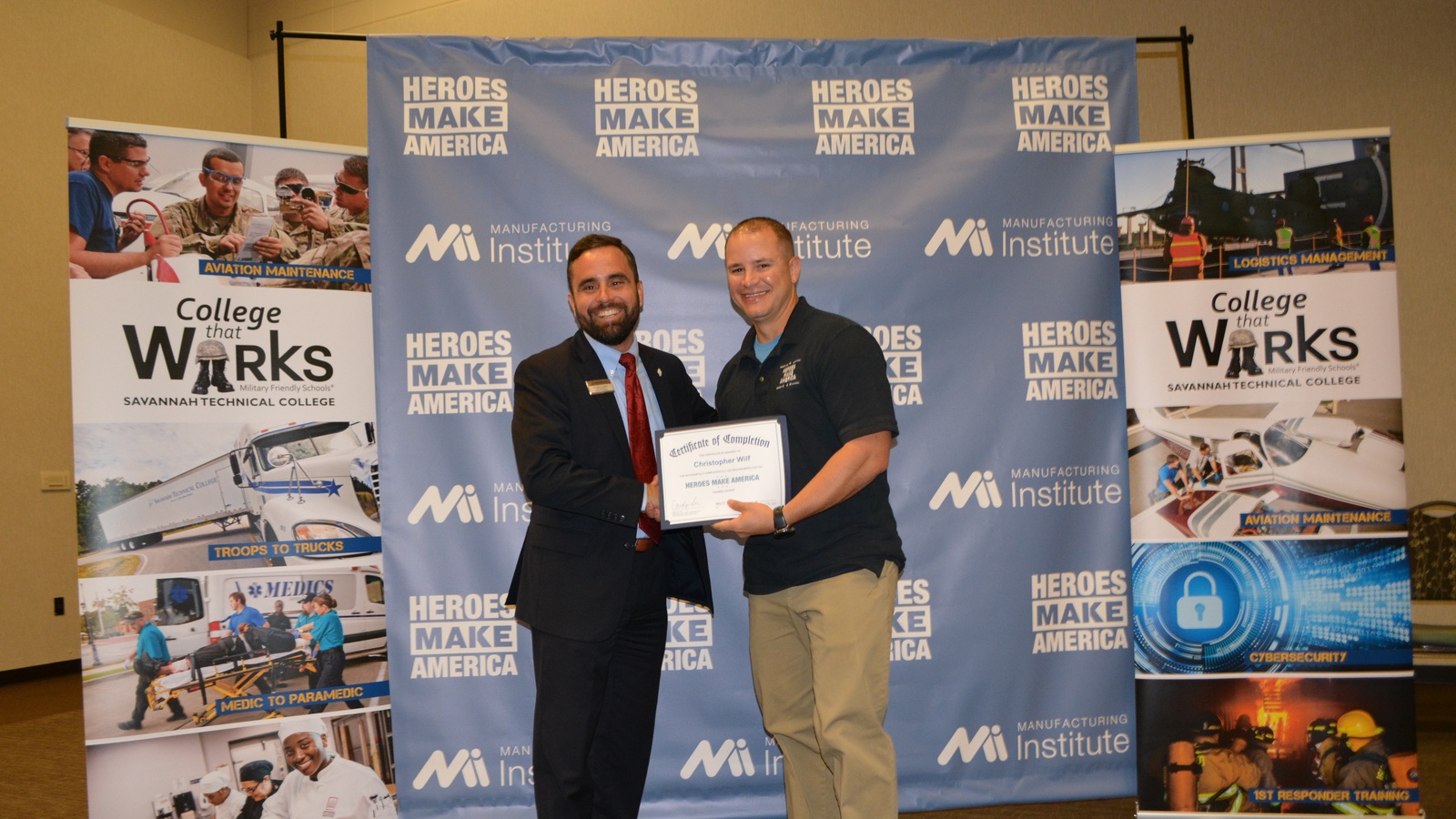An Army Vet Transfers His Skills to Manufacturing

For Christopher Wilf, joining the armed services is a family tradition.
“When I was growing up, my dad was in the military, his dad was in the military, and my mom’s side of the family had people in the military,” said Wilf. “When I was 16 and trying to plan out my future, my high school had a recruiting station with all four branches. I went in asking for information and went from there.”
Wilf had a four-year plan: to join the military, gain some skills and earn some money. But as he prepares to exit his role as a warrant officer in the U.S. Army more than 21 years later, it’s clear that the experience was a better and more long-lasting fit than he expected.
The next step: After two decades working in military aviation, Wilf wanted to try his hand at something else—and when he was introduced to the MI’s Heroes MAKE America program at Fort Stewart, outside Savannah, Georgia, he saw an opportunity for a new career.
- “Heroes gives you a whole range of opportunities, whether it’s within your existing specialty or not,” said Wilf. “If you’re looking for something new, they’ll provide you some references for that new area.”
- “We’re in Savannah, and logistics is huge here—lots of Fortune 500 companies that need logistics support. I understood logistics, but had no background in it, so the Heroes program I chose provided me with some of that training.”
The program: The MI designed Heroes MAKE America as an integrated certification and training program that helps prepare transitioning service members, veterans, National Guard members, reservists and military spouses for careers in the manufacturing and supply chain industries. It offers in-person and remote training options, as well as career guidance and placement support.
The results: Through the Heroes program, Wilf is working as a warehouse distribution manager at the Target distribution center in Midway, Georgia—and he credits Heroes with offering him the training to succeed.
- “As a guy coming in with no formal logistics knowledge, it gave me everything I needed,” said Wilf. “I’m currently working in the logistics field, and now I have some framework for how logistics works. When a concept comes up at work, I have a frame of reference—I can say, tell me about the specifics of this job, but I understand the general theme.”
Good advice: “Go into Heroes seriously, with a mindset of ‘I am doing this for myself and my career, to better myself and gain knowledge that makes me marketable in the civilian world,’” said Wilf.
- “For me, that was the most beneficial aspect of the course—that I became immediately marketable, even though it was only a two-month program. Employers know that I have some knowledge, and I’ve proven that I’m someone who can lead.”
The transition: It’s clear from Wilf’s experience that the skills he gained in the military make him a strong fit for manufacturing—and that the industry can provide him with a long-term career.
- “In just two months, I’ve already seen how my skills transfer,” said Wilf. “I’ve gone through a lot of interviews, and those characteristics of a military person—to be reliable, to be safety-conscious and to be a leader—that’s what people are looking for.”
- “Picking Heroes MAKE America provided me with the ability to stay on an upward trend and find a career, not just a job.”
A pitch for manufacturing: “If you’re looking for a field where you can get a job, with potential for upward growth, then manufacturing is it,” said Wilf. “From being at the warehouse level to working in management at headquarters, that potential for growth is real.”